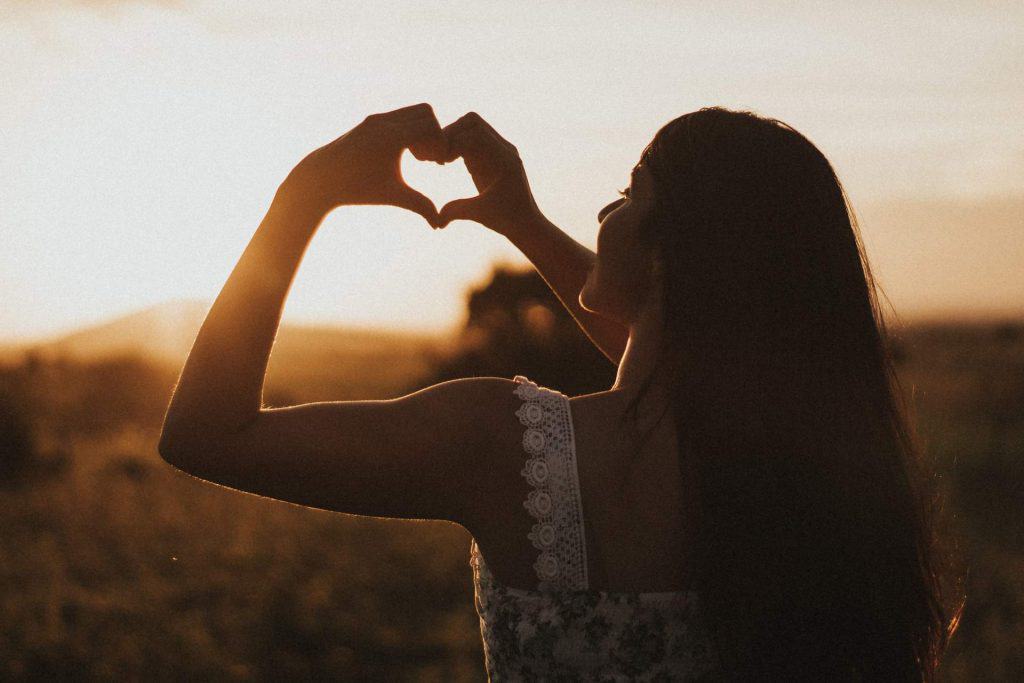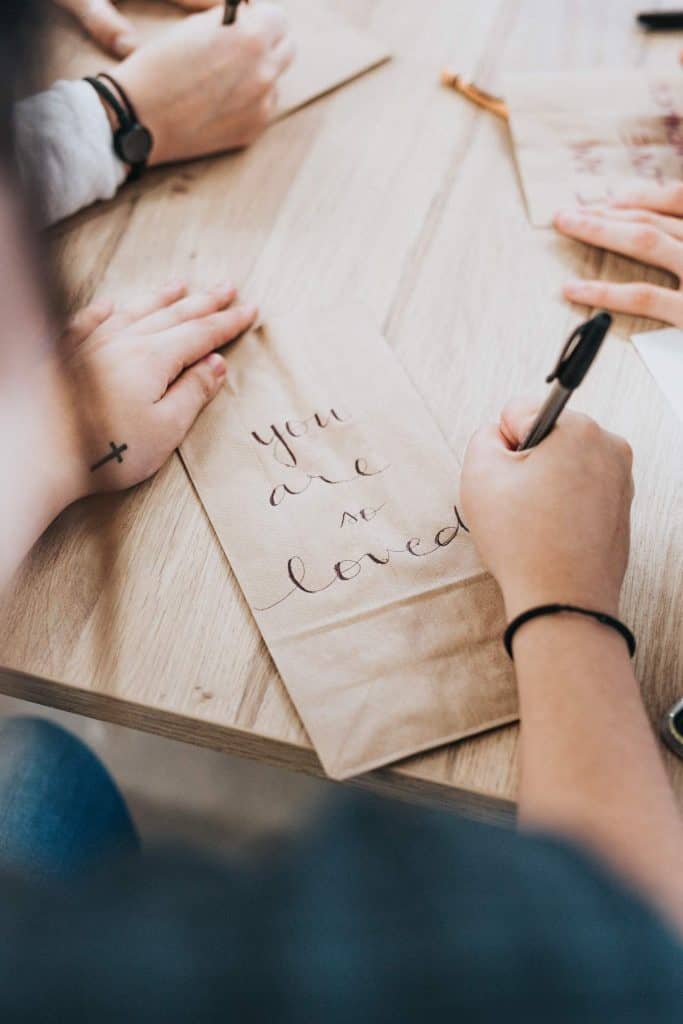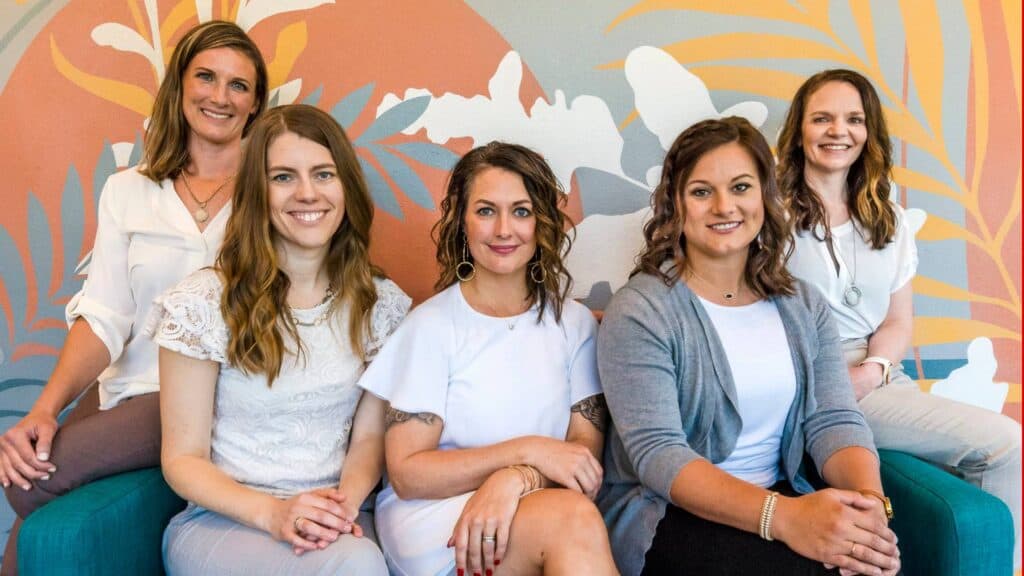Why are you so big? I hate the way you look! I hate you! Why can’t you just be smaller, taller, different, pretty? These are harsh and hateful words that we don’t say to others, but we often say to ourselves easily. Our minds can end up in some pretty dark places when we look into the mirror. If you have these or similar thoughts, you may struggle with a negative body image or body dissatisfaction. According to the National Eating Disorder Association (NEDA), a negative body image involves characteristics such as a distorted view of your shape or appearance, shame, anxiety, self-consciousness, and feelings of imperfections in comparison to others (2022).
A majority of individuals are struggling with or have struggled with body image at some point in their lives. There is no shame in struggling with body image. Our society has set us up to believe it is honorable to always critique our bodies, compare ourselves to others, and attempt to change our bodies to fit into an “ideal” body mold (whatever that means). These attempted changes to our bodies often cause harm both mentally and physically. This fake “ideal” body has set us up for failure in our own minds, and gives us a false entitlement: that it is appropriate to comment on others’ bodies and/or judge others by their appearance. Why would it be ok to comment on someone else’s body? The body doesn’t impact anyone but the owner. My opinion, it’s not appropriate, ever; it just isn’t. Comments may seem innocent, but they can stick with a person for a very long time. When you hear someone making comments about another person’s body, do you find yourself wanting to shout: “Hard stop, Maureen! Move along and find something else to talk about!” As a society, we need more disapproval of the body comments and shaming and less opposition to body differences. Uniqueness should be celebrated! How uninteresting would life be if we all looked the same?

You may be asking yourself why a Registered Dietitian is discussing body image, it has nothing to do with food?? Let me explain.

So how do we develop a more positive body image? It takes a lot of work and the work is difficult. It is worthwhile and can help us feel better about ourselves. The National Eating Disorder Association has developed a list of 10 actions we can do to help us develop a more positive image of ourselves. This list includes actions such as body appreciation, surrounding ourselves with positive people, and participating in self-care activities among many others. The full list can be found at: 10 Steps to Positive Body Image | National Eating Disorders Association. We should also be more cognizant of how we talk to others.
At Unbound Recovery, both the therapists and the dietitians work with clients to improve body image by helping clients see a new perspective. We focus a lot on reframing negative self-talk and thoughts and practicing body appreciation statements. We discuss how it feels physically to be within the body, that it may be hard to be in the body and then also try to find something that we appreciate about ourselves. The overall goal is to interrupt the automatic response to always speak to ourselves negatively. I also utilize an activity learned from Marci Evans, MS, CED-S, LDN: writing letters to a body part that we struggle with the most. I ask the client to choose a body part that they struggle with and write a letter to that body part, telling the part everything they feel about it with no filters. Then, they write a response from the body part. I have the client read the letters out loud in session. This activity helps the client see just how harsh we can be to ourselves and the response back is usually an argument for appreciation for everything the body part does for the person. Because this can be an awkward experience, I usually complete the activity with clients and am willing to share my letters in session too. Stay tuned for a second blog on body image where I share one of my letters.
There are many other activities that we can do to promote a healthier body image and therapists and dietitians at Unbound Recovery enjoy working with clients on body positivity. At Unbound Recovery, we have immediate openings for outpatient nutrition counseling services and therapy services. We specialize in working with adolescents and adults with eating disorders, disordered eating patterns, body image concerns, chronic dieting, self-esteem concerns, and more. Call us today at 785-510-3008 or email us at info@unboundmhk.com to get started. Currently, we are accepting new clients at both our Manhattan, KS and Topeka, KS Locations!
References:
About the Author:
Amber Howells, PhD, RDN, LD
As a Registered Dietitian Nutritionist (RDN) at Unbound Recovery in Manhattan, KS, Dr. Amber Howells enjoys working with individuals to restore their relationship with food, while helping them achieve overall health and wellness goals. She is a Kansas native and resides in Manhattan, KS with her husband and five children.
